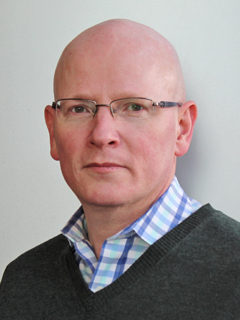HOW CAN WE HELP YOU? Call 1-800-TRY-CHOP
Chorny Laboratory
The laboratory led by Michael Chorny, PhD, designs and evaluates delivery systems for small-molecule drugs and biotherapeutics, focusing on developing new therapies for vascular proliferative diseases and high-risk pediatric malignancies.
Over the past several years, the Chorny lab at Children’s Hospital of Philadelphia and the University of Pennsylvania has developed and reported new approaches for producing biodegradable polymer- and lipid-based nanocarriers and for examining their drug release behavior, disassembly patterns, intracellular fate, and biodistribution, as well as therapeutic and adverse effects. These new formulation methods enable stable encapsulation of a variety of therapeutic cargoes and make possible their delivery to the target, such as injured blood vessels or solid tumors, while protecting the payload and preserving its biological activity.
Among several research projects led by Dr. Chorny's team is one centered on understanding how drug delivery can be controlled and improved by using rationally designed, in situ activatable precursor molecules (prodrugs), including prodrug constructs built using a pair of pharmacologically complementary drugs (co-drugs). Such precursors can be designed and optimized to achieve targeted delivery of therapeutic agents using nanocarriers or macromolecules. New prodrug and co-drug formulations developed using this knowledge pave the way to more effective and safer therapies for vascular pathologies and aggressive cancers that resist conventional treatments.
Projects focusing on cardiovascular disease involve vascular targeted delivery aimed to increase uptake and retention of therapeutic agents within injured blood vessels. The experimental approach pursued by Dr. Chorny and his colleagues applies in situ activatable macromolecular prodrugs to achieve controlled drug release and stable anchorage within the injured arterial wall, with the ultimate goal to improve therapies for post-angioplasty arterial restenosis and pulmonary hypertension.

Michael Chorny, PhD
Investigator
Dr. Chorny's research program focuses on nanomedicines as well as drug, cell, and gene delivery systems for treating proliferative disease. His current research specifically focuses on the use of nanoparticle-mediated delivery to solid tumors and site-specific delivery for cardiovascular disease.